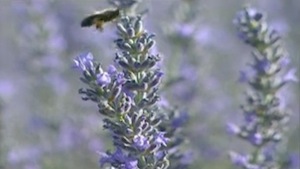
- 31'
- Author : Marion Leclercq
- 23-11-2013
- Master : 2299
-
Share!
Honey under threat: 10 years on | la suite | France 2
Ten years ago, distressed beekeepers spoke to Envoyé spécial. At the time some of them were losing up to 70% of their harvest. Their bees were no longer able to return to the hive. They suspected that a new generation of pesticides was the cause of this slaughter. After years of struggle came the first victory for the beekeepers: the pesticides Regent and Cruiser have since been banned in France. And now the European Union has just suspended the use of four molecules on certain crops in order to protect the bees. But can the sector recover from these dark years? Are pesticides alone responsible for the decline of bees? How have relations between farmers and beekeepers progressed? We went back to the beekeepers who raised the alarm in 2003. Today the death rate among their bees remains a concern. French honey production is on the decline while its consumption remains stable, which means France must import twice as much as it did ten years ago. As in 2003, we follow one of the buyers of the Michaud business in Spain on his increasingly difficult quest for honey. We’ve questioned scientists and pesticide manufacturers. How do they explain the decline of the bees? If they are a danger to bees, can pesticides also have an impact on our health and enter our food chain? For a start, some farmers have agreed to change their practices and opened a dialogue with beekeepers, a sign of a growing, collective awareness.
